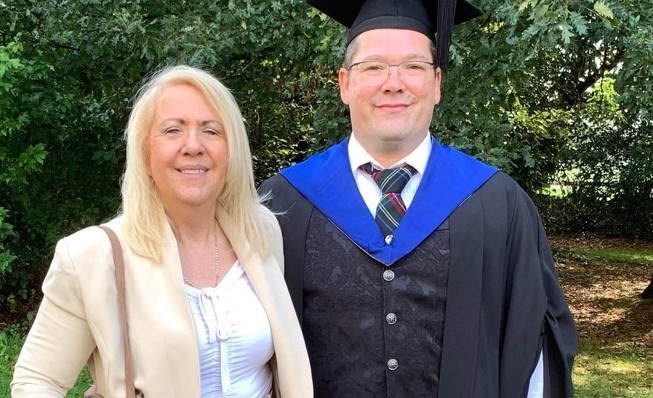
Supported Tenancies – the inextricable link between housing and health
Supported Tenancies – the inextricable link between housing and health
By Sarah Murphy, Head of Customer Service at Worthing Homes - a partner in our Supported Tenancies housing scheme
I became involved with the Supported Tenancies pilot with Sussex Partnership back in early 2023 through my previous role with Southdown, a small, specialist supported housing provider.
The Supported Tenancies pilot aims to provide five people open to SPFT’s Enhanced Community Rehab team a secure and stable home as part of a package of care and support to help them to improve their mental health and recover.
The scheme is only the second of its kind whereby that inextricable link between health and housing is not only recognised, but a partnership cultivated to ensure best outcomes for patients; leveraging in the provision of good quality, affordable social housing.
A long-term, decent home is surely a cornerstone of a positive and happy life and it’s hard to see how someone can work on improving their mental health if they lack that basic security.
Alongside the clinical support of SPFT, the resident (patient) gets an intensive housing management service from the specialist landlord whose staff are used to working with complex needs and great at establishing positive, lasting relationships with their tenants.
The support from the Enhanced Community Rehab team may last as long as three years, after which time, the hope is that residents’ mental health and independent living skills will have improved to the point that they are able to manage their tenancy with minimal support. The tenancy will endure beyond those initial years of support, giving the resident a secure, safe place from which to continue on their recovery journey.
Collaborative and supportive partnerships
It’s been a really great collaborative process, working with Chris Harris at SPFT alongside other partners in the supported housing sector, BHT, Stonepillow and Turning Tides. We met regularly as a group to talk about how we could make the pilot work and to really get an understanding of each other’s aims and objectives as well as our specific regulatory and operational challenges and importantly the strengths each partner brought to the table. As a housing provider, it’s been really heartening to see the NHS recognising the potential that great partnerships with housing providers can have, and to see good quality housing as a vital resource to draw on in order to achieve health objectives.
We were able to talk openly about the challenges we might face in running such a service and by having that honest dialogue, came up with a really fair and robust risk sharing agreement, something that would give us housing providers the security we needed to get our buy in. We talked about the role that SPFT and the housing provider would play in scenarios where the resident’s mental health significantly deteriorated and were able to agree both interventions by SPFT to safeguard the resident but also agreements by the landlord as to how the tenancy could be protected, even if the resident was recalled to hospital.
How can general needs housing providers play a part?
In my new role I’m now working for Worthing Homes, a general needs housing provider which also has involvement with the project via our leasing agreement with Turning Tides. We firmly believe that housing associations have both the power and responsibility for creating better, happier communities, beyond simply the provision of good quality housing. This is also an area that the Regulator will be more closely monitoring going forward as part of the revised Consumer Standards. Landlords will be expected to “work with relevant partners to promote social, environmental and economic wellbeing” in the areas where we operate.
For this pilot we lease the properties to Turning Tides who act as an intermediate landlord for and provide the specialist housing staff to help maintain the tenant in our property.
I’d encourage other general needs providers to look at the role they could play in this or similar schemes, either directly or through sub-leasing arrangements to specialist supported housing providers.
Celebrating success
So far the pilot has been a great success with 0 incidents and 0 re-admissions to hospital for the four current patients. For the NHS there has been a total cost of £650 in void rent costs (part of the agreement with housing providers) with an estimated cost saving from avoided inpatient care of around £100k. The pilot represents an amazing success in terms of meeting patient needs in the best setting possible as well as achieving an incredible return on investment for the Trust.






























